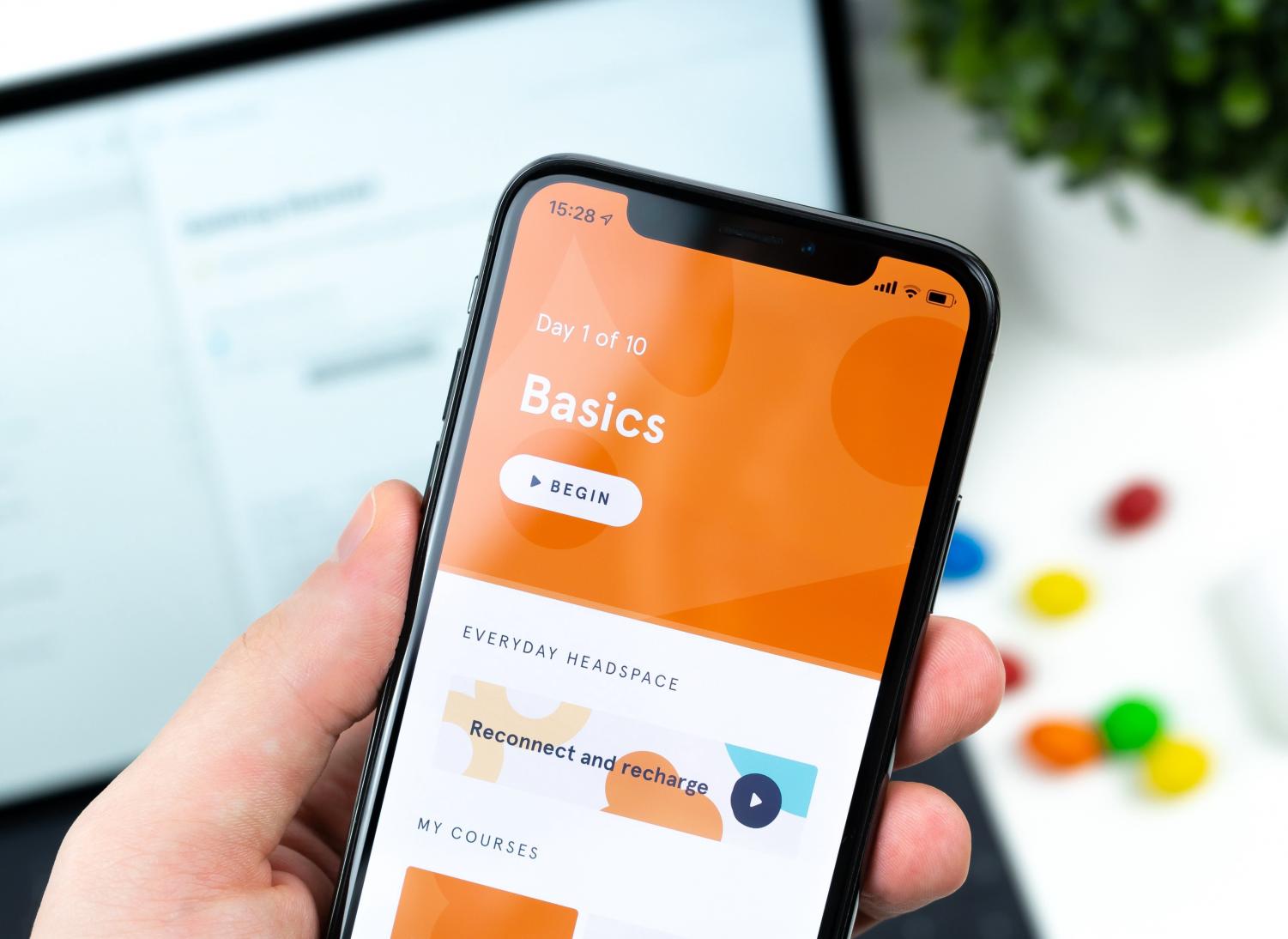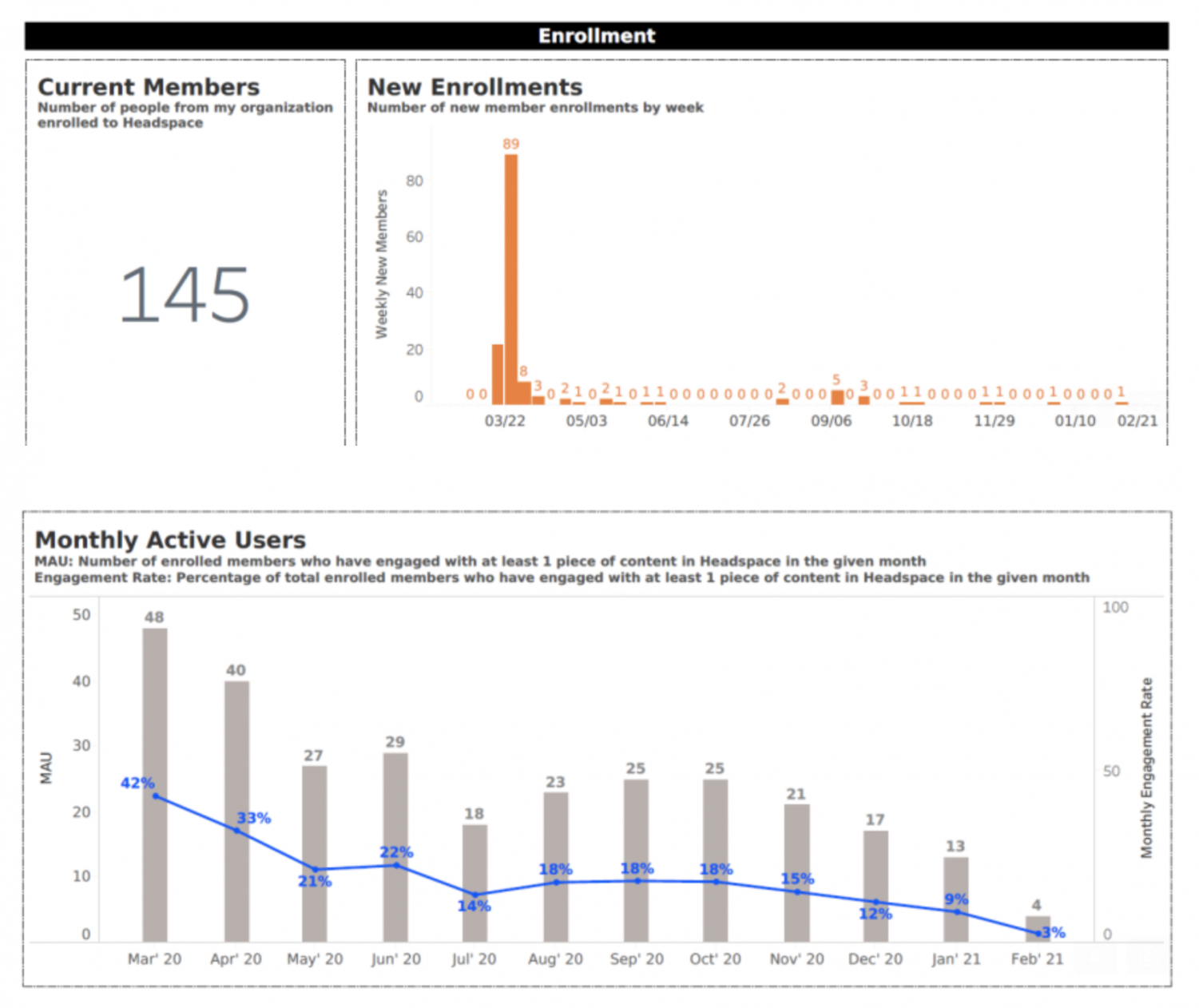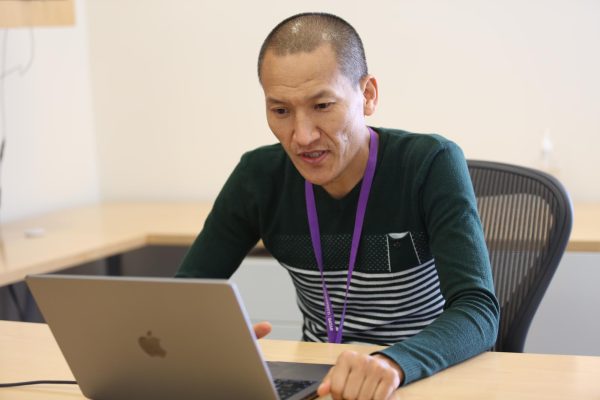Mindfulness Mobile Applications: Turning a Skill into a Pill?

Originating in the Vedic traditions of ancient India, mindfulness-based stress reduction is now increasingly being practiced by millions of people right from their phones. A revenue increase of $195 million has surged through the top 10 mindfulness apps alone between 2015 to 2019, according to a report by Sensor Tower.
Mindfulness applications have provided individuals with a low-cost and easily accessible way to manage their mental health. However, some fear they may end up being used as a quick fix rather than a way to fully internalize the practice of mindfulness.
“Mindfulness is a skill, not a pill. And an app can be treated like a pill,” said Meg Salter, mindfulness coach at her own Toronto-based consulting practice, in an interview with The Daily Q.
While there are different ways of implementing mindfulness, such as listening to guided meditations, the practice is famously defined as “paying attention on purpose, in the present moment, and non-judgmentally to the unfolding of experience moment by moment,” by Jon Kabat-Zinn, professor of medicine emeritus at the University of Massachusetts Medical School.
Apps incorporate mindfulness-based stress-reduction practices through guided meditations for various feelings such as anxiety, depression, and loneliness. Guided meditations include a soothing audio-recording that directs focus on breathing or physical sensations. This helps deal with stress because one becomes more aware of their thoughts without following or getting distracted by them, according to Rik Isensee, certified mindfulness teacher and author of Shift Your Mood: From Reactive to Mindful.
Some of these apps, such as Calm, also have stories and music to help people sleep. These stories are meant to be relaxing, sometimes narrated by popular Hollywood personalities such as Idris Elba and Harry Styles. ‘Scenes’ or sounds from nature seek to calm a listener’s mind so they may peacefully go to sleep. Mindfulness mobile applications can also provide the support some people need to slow down their thoughts.
“I’d never had a set schedule to take stock of my surroundings and let my brain stop racing before,” said Eunice Thambiraja, a 21-year-old-medical student who has been using Headspace, a mindfulness app with over 70 million downloads so far. Thambiraja began using the application in early 2020 after the subscription was gifted to them by a friend. “It’s been phenomenal in helping me set up time to just be mindful,” they said.
When Headspace launched in 2010 it simply hosted meditation events. Today, however, it provides people with meditation techniques to take home. With the COVID-19 pandemic shutting people in their homes, the app’s accessibility has been especially useful, providing various kinds of support for people according to their needs.
For Noor Haddad, a junior at Northwestern University in Qatar, the app’s “sleep casts” have helped her on days where she had trouble sleeping. “They walk you through stories and build an environment that helps me fall asleep,” said Haddad.
Corporate subscriptions after the outbreak of the pandemic have also contributed to a surge in the use of applications such as Headspace. Since mid-March, there has been a 500 percent increase in the enrollments of the Headspace for Work program. Universities and employers have also begun sponsoring free subscriptions of the app for their students and employees through the program.
In March 2020, NU-Q collaborated with the company to provide their community members with free subscriptions, following a proposal by Elissa Mefleh, a junior at the university.
“By doing this, we could work on preventative measures to facilitate better mental health among students,” she said.
Mefleh was researching ways to make the community a more positive environment in her role as department assistant in the student affairs office when she discovered that Carnegie Mellon University in Qatar had been providing Headspace subscriptions to its students at discounted rates. Soon after, the pandemic broke out in Qatar and called for the perfect time to sponsor access to the app.
“Since the building wasn’t going to be open, it was really timely for us to implement offering the Headspace app to our students, faculty and staff,” said Patricia Collins, counselor at NU-Q, who worked alongside Mefleh to provide the free subscriptions.
“I started using Headspace when we were transitioning to online classes which were very overwhelming,” said Nadia Al-Hinai, a sophomore at NU-Q. Had the university not provided free access, she would not have considered trying the app out by buying a subscription, said Al-Hinai.
While this boom can be seen as a concern on the part of organizations for their community, could it also be an easy way out of properly dealing with mental health issues? In an article by STAT News, Chris Noone, a researcher on well-being interventions at the National University of Ireland, Galway, stated that he is worried such partnerships are being used in place of more effective measures to tackle mental health issues in academic and workplace environments.
“I do have concerns that mindfulness programs, and especially mindfulness apps, are seen by organizations as a cheap and easy win when it comes to employee and student welfare compared to more expensive — but possibly more effective — structural changes in their organizations,” he said to STAT News.
Some more tangible, structural changes that workplaces should make include ensuring a living wage for all employees and a transparent workload model that places manageable expectations, according to Noone in an email to The Daily Q. “Other areas of equity—gender, accessibility, race, sexual identity—should also be tackled if wellbeing is a true aim,” he added.
Noone suggested that universities could also tackle stressors for students more directly. “Universities should consider designing curricula in ways that reduce stress and make learning accessible for people of all backgrounds,” he said in the email.
Some examples of the actions academic institutions can take to reduce the amount of pressure on students can actually be seen in the recent measures taken by some universities during the pandemic. In response to the COVID-19 pandemic, U.S. universities including some of the Ivy Leagues, changed their grading policies to pass/fail variants which gives full credit for simply passing the course and therefore is less likely to harm one’s academic standing. Multiple universities around the world have also reduced their tuition fees to help students cope with the financial burdens of the pandemic such as job losses.
Another problem with mindfulness applications is that their exercises and guided meditations may not be able to give the regular feedback people need to keep their mindfulness practice on track, according to Isensee. “A guided meditation keeps your mind directed, like training wheels on a bike; eventually we need to be able to ‘freewheel’ it on our own,” he said.
Although the mental health effects of the pandemic still linger, there has been a decline in the use of Headspace by NU-Q students, according to data sent by Headspace to the university. This has also led the campus to consider cancelling the student subscriptions. “Being in the pandemic with all the budget cuts … we’re trying to be very fiscally responsible in terms of where the money is spent,” said Collins.

For some students, their frequency of use is based on when they need the app. “I only really use Headspace on days when my brain is working on 10 different levels,” said Haddad, who got access to the sleep cast feature after NU-Q sponsored subscriptions.
Studies have also shown that although there is evidence to support the benefit of apps like Headspace for college students, work stress, and mental health troubles such as anxiety, they too have been based on short-term interventions rather than assessing long-term use.
Often people initially download mindfulness applications just to test them out and see how effective they really are for them, according to Martha Neary, project manager of One Mind PysberGuide, an online platform that provides expert reviews of mental health apps.
Although the mental health app market is expanding, with consumers expressing an interest in them too, a lot of the mental health applications do not have direct research to support them in the first place, according to Neary.
“Part of the reason for that is that what we would call sort of a commercialization gap,” she said. This entails that teams that are interested in commercializing a mindfulness app may lack the skills or resources to set up adequate research trials, Neary explained. At the same time, she stated, those who are equipped to carry out research are not necessarily skilled at or interested in commercializing such apps.
Headspace is one platform that also funds research on the efficacy of the app. The company had 50 ongoing clinical research studies that were being conducted by external partners as of August 2020, according to Megan Jones Bell, chief strategy and science officer of Headspace, in an email to STAT News.
While Headspace is using its large resources to support research that can suggest improvements in the app, official organizations have also begun to regulate mindfulness apps. In 2019, the World Health Organization released a guideline on digital health interventions. More recently, the United States Food and Drug Administration also released a policy report on its plans to oversee the safety and efficacy of mobile medical apps.
Along with investigating the effectiveness of mindfulness apps in the long term, researchers also call for other improvements in studies such as including more non-English mindfulness apps and selecting fewer samples of convenience, for example, college students (who have a greater need for such an app) or individuals who have already downloaded the app rather than people who are made to start using it because of the study.
Benefitting from these apps can also be a result of people’s own discipline, according to Francisco Jose Eiroa-Orosa, co-author and methodologist on a study of mindfulness apps. “What you see in that publication and in many others, despite the positive results, is that this is achieved in people who have already reached a certain level of motivation,” said Eiroa-Orosa in an email to The Daily Q.
Salter too has noticed an increasing interest in mindfulness applications among those who come to her for coaching. “When I’m teaching people now…their beginner level is senior to what it used to be 10 years ago,” said Salter.
Although Salter praises the apps as a good starting tool, she encourages building upon their use. “At some point, I think you need to go beyond the app because they’re generic. And your mind is not generic,” she said.












